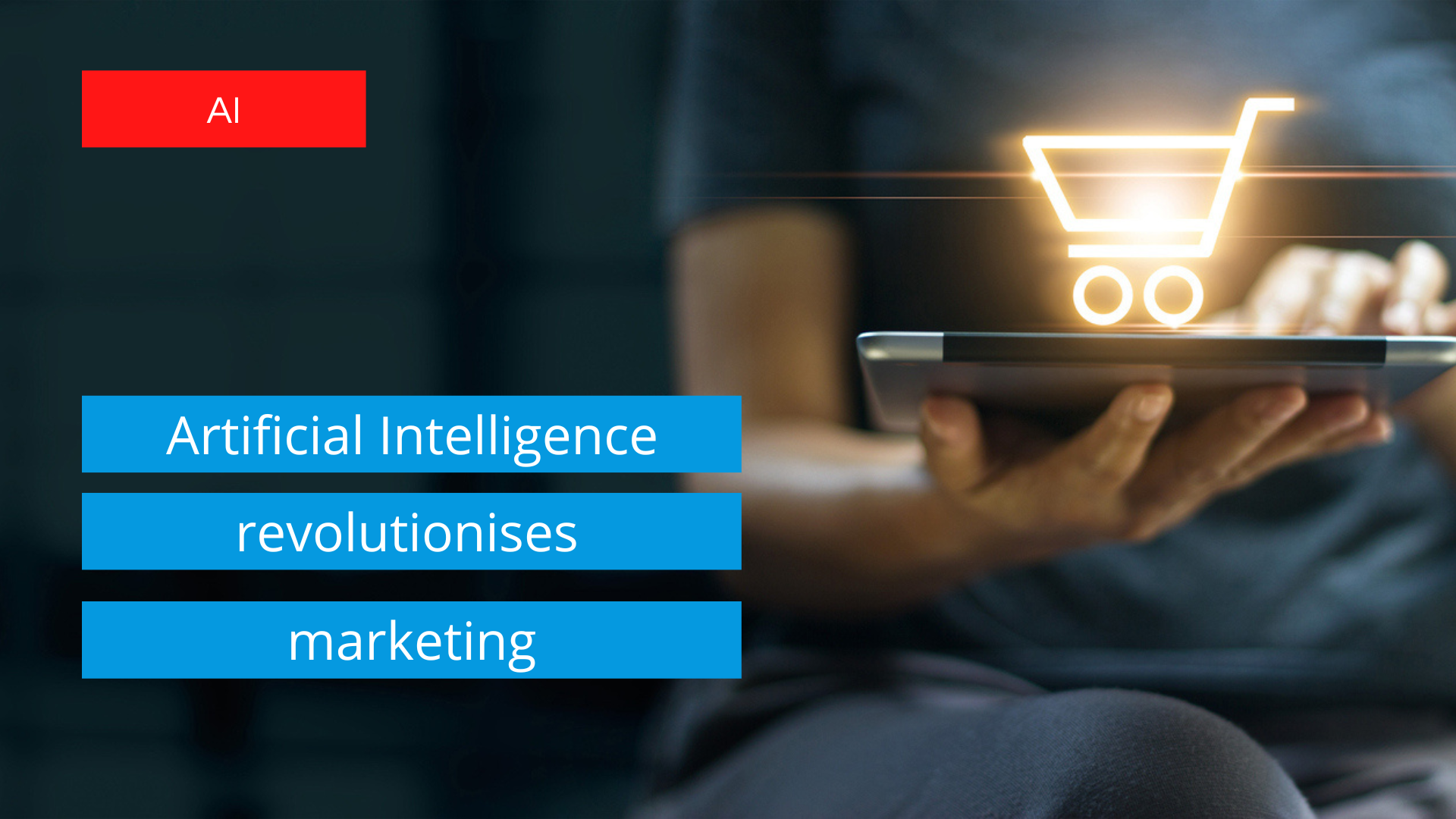No one can now ignore the near omnipresence of artificial intelligence. It is everywhere, from our daily sports or diet applications to the decision support systems of the world's largest companies, via visual or semantic recognition platforms.
Topics: Personalisation, E-marketing, Artificial Intelligence
AI: when Artificial Intelligence revolutionises marketing
Improved ad targeting and e-commerce site design, personalised customer service and lead acquisition... Artificial Intelligence is transforming the marketing industry. Much more than just a tool for saving time and automating thankless tasks, because of its ability to process large volumes of data, it contributes to considerably improving the customer experience, standing out from the competition and, ultimately, promoting the growth of companies. Here are some explanations!
Topics: E-marketing, Artificial Intelligence
Artificial intelligence and marketing: five trends to boost sales
Artificial intelligence is everywhere: administration, industry, health, finance, automotive... But also, in
e-commerce! AI is a powerful marketing ally for online sales. However, sometimes it can be challenging to find your way through the jungle of artificial intelligence solutions...
How can AI help you optimise your website’s customer journey? Which solutions are the most effective in boosting your sales? What are the trends to watch out for? To help you see things more clearly, Netwave gives you five marketing trends to boost your sales with artificial intelligence!
Topics: E-commerce, Artificial Intelligence
Personalized recommendation: don't make the mistake of choosing volume over relevance
About real-time interaction on merchant sites, one of the most value-destroying mistakes is certainly to prefer volume to relevance.
The personalized product recommendation is a service provided to the user that meets 2 of your main objectives:
- increase your turnover / visit thanks to strong relevance,
- but also improve a more fluid and productive user experience for your visitors.
When a recommendation service is implemented, the first reflex is to maximize the number of recommendations produced throughout the Internet user's navigation. And for each recommendation to present a significant number of products.
This is a mistake and is done to the detriment of the objectives pursued.
Product recommendation does not follow the same rules as natural site merchandising.
It is important that the user identifies the recommendation as a personalized service in relation to his actual situation.
It must therefore be accepted that, in certain situations, relevant advice may not be provided due to a lack of significant information from navigation.
In this case, it is better to wait until the user's navigation offers more actionable elements to obtain a relevant recommendation, rather than producing obligatorily a recommendation.
If the Internet user only perceives the recommendation as an automatic process that is not really personalized, he will no longer pay attention to it. It will become, at best, unproductive. At worst counterproductive, depending on the degree of perception of unwelcome pressure.
A good in-store salesperson seeks above all to obtain information allowing him to determine in what situation his visitor in order to provide him with relevant advice before making a recommendation: is he in the process of buying? information search? does he have an attachment to a brand? a defined budget? technical prerequisites? ... etc.
Otherwise, he and his recommendation are not perceived as a service but as a pressure and permanently taint the “trust” dimension of the relationship with the brand. Carpet merchant, says popular wisdom...
On a merchant site, it's the same. Producing recommendation banners with each navigation, even if you are not able to do so with relevance, will cause this recommendation to be considered by the Internet user as non-personalized "advertising". An advertising exposure that does not take into account his situation. Pure and simple pressure.
Without paying attention to his expectations.
And this will be accentuated by the fact that the sites often define recommendation banners using the same design as that used by the natural merchandising of the site.
The impersonal nature of the “wording” that accompanies these banners reinforces this phenomenon: “Discover the top sellers”; “Other Internet users also viewed”, …
Preferring relevance to volume, on the other hand, allows the recommendation to be accompanied by targeted communication that appeals to the Internet user:
"Fan of the LG brand, discover the new OLED products", "Passionate about innovation? Here is a selection just for you"...etc.
In conclusion:
1/ it is better to recommend when there is really something to recommend,
2/ to accompany this recommendation by specifying the nature of what is recommended and why it is recommended at this precise moment.
Otherwise the recommendation will not be perceived as a service provided to the Internet user but as a simple highlighting of products responding to a simple wish to destock.
Know how to offer your visitors what they expect: real advice based on a real understanding of their expectations.
Recommend less. Recommend wisely.
Topics: Artificial Intelligence, Recommendation



